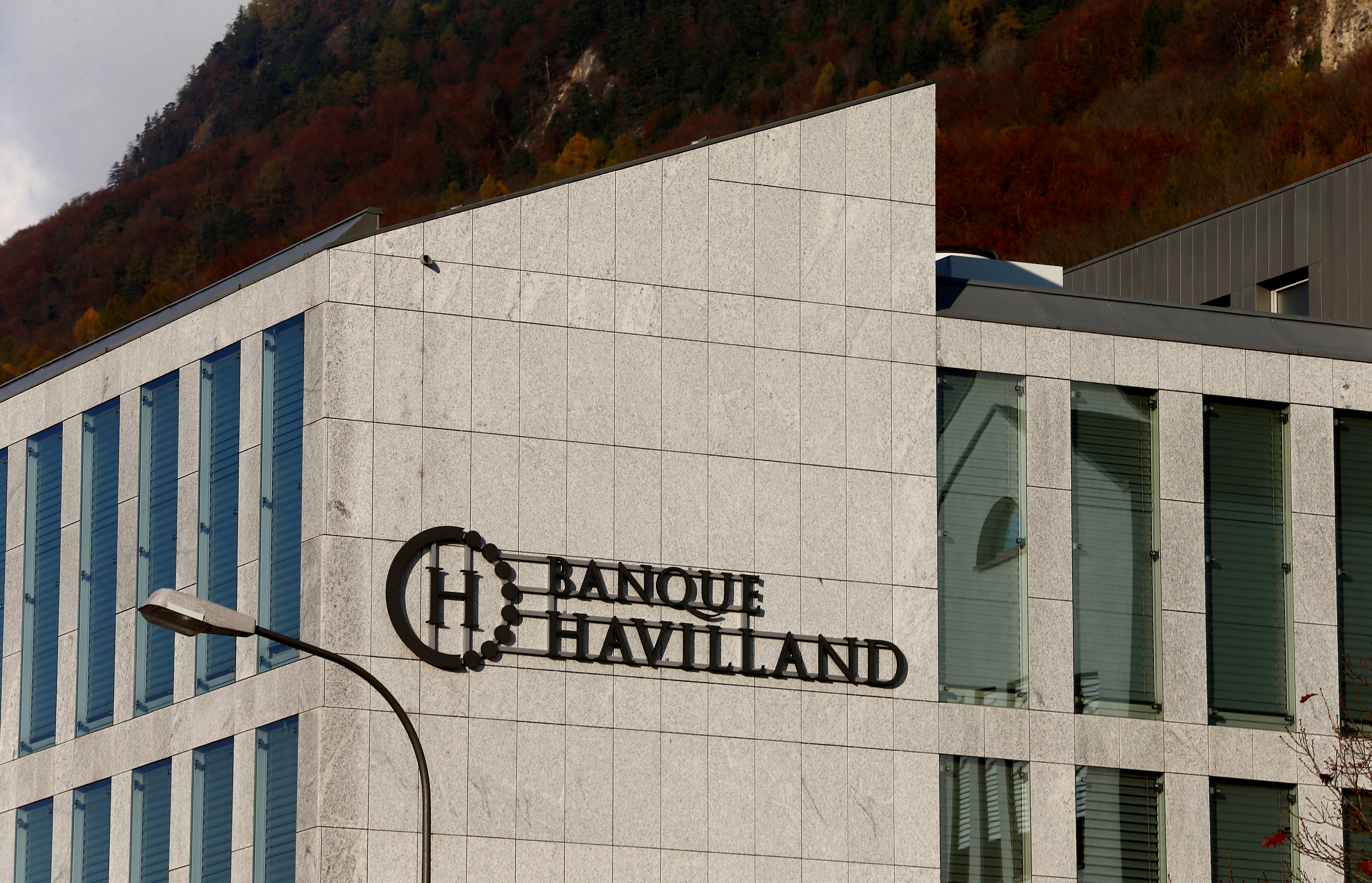
Banque Havilland starts shutting down Swiss units

Banque Havilland SA, a private bank owned by the family of close friends of the disgraced British royal Prince Andrew, has begun the process of closing its operations in Liechtenstein and Switzerland, days after being told by the European Central Bank that it would lose a key licence.
The firm will start a voluntary liquidation of its Swiss and Liechtenstein businesses, according to an internal memo seen by Bloomberg News. The decision is not the result of any issues with the bank’s solvency or liquidity, and the wind-down is being conducted in cooperation with local regulators, according to the memo.
+Sign up to get the most important news from Switzerland directly in your inbox
A spokesperson for Banque Havilland declined to comment. Liechtenstein’s financial market supervisor confirmed in a statement on its website that the local unit had returned its banking licence. Switzerland’s watchdog Finma didn’t immediately respond to an email seeking comment.
The closure of the private bank’s units in the two countries comes in the wake of an European Central Bank (ECB) letter informing the firm it would no longer be allowed to conduct business in its home market Luxembourg. The bank has already stopped taking new money and talks to sell its Monaco business are already underway, people familiar with the matter told Bloomberg previously.

More
Swiss National Bank Chairman encourages public engagement in financial issues
Being stripped of its Luxembourg licence marks a dramatic reversal of fortunes for Banque Havilland, which is controlled by the family of UK Conservative Party donor David Rowland and could once call upon Prince Andrew to act as an unofficial door-opener to the world’s financial elite. For years, the British royal provided the Rowlands and the bank with introductions to governments, billionaires and top business people, Bloomberg has previously reported.
+ UBS questioned by US Senator over $350 million tax evasion case
The ECB’s latest decision was prompted by the bank’s failure to implement changes required of it after it was fined €4 million (CHF3.8 million) for anti-money-laundering failings by its local Luxembourg regulator in 2018, according to the people familiar with the matter. At the time, the bank had vowed it would redefine its approach to risk and end relationships with some clients.
©2024 Bloomberg L.P.

In compliance with the JTI standards
More: SWI swissinfo.ch certified by the Journalism Trust Initiative

























You can find an overview of ongoing debates with our journalists here . Please join us!
If you want to start a conversation about a topic raised in this article or want to report factual errors, email us at english@swissinfo.ch.